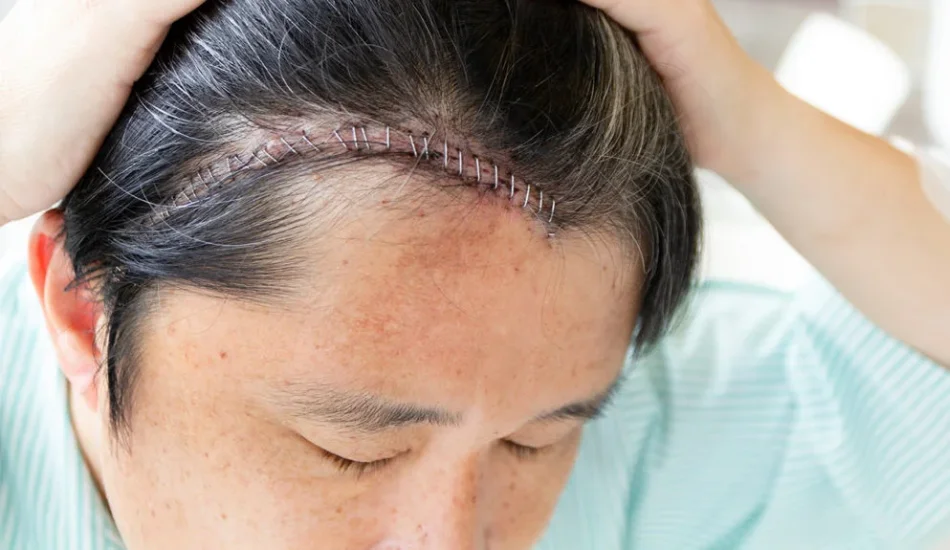
The term breakthrough cancer pain (BTCP) is an intense and sudden pain flare-up that can occur regardless of whether a patient is using pain medications regularly to treat chronic pain from cancer. These severe pain episodes are often sudden and get to their peak in a short time leading to extreme discomfort and stress to the patient. The understanding of BTCP is essential for caregivers and patients, since an effective treatment can significantly enhance living quality patients affected by cancer.
Specific characteristics Of Breakthrough Cancer Pain :
BTCP has distinct characteristics that set it apart in comparison to other forms of pain
- Rapid Onset The pain of breaking through comes abruptly, and often without warning indicators.
- short duration The pain episodes typically last anywhere from just a few minutes up until an hour but the duration may vary.
- The High-Intensity The pain is typically severe and more intense than background pain that is managed by the regular medications.
- Frequency Patients might be affected by BTCP multiple times throughout the day, and this can greatly affect daily activities and general well-being.
Different types of cancer pain that can be caused by a breakthrough :
BTCP is classified into various types based upon its patterns and triggers:
- Incident Pain Caused by certain actions or movements, like walking, coughing or dressing.
- Spontaneous pain It occurs without apparent cause, and can occur anytime.
- End-of-Dose Pain occurs after the effects of the regular medication to treat pain diminishes prior to the next dose is scheduled.
The causes of cancer pain after a breakthrough :
The reason for BTCP is not known, however it’s often linked to cancer or the treatment. The most common causes are:
- growth of tumors The pressure of tumors on bones, nerves, or other organs may result in intense pain.
- Therapy Side Effects Treatment side effects: Radiation treatment, chemotherapy or surgery may all cause instances of acute pain.
- Infections Patients with cancer are much more vulnerable to infections that can cause pain.
- Bone Metastases When cancer develops in the bones, it may cause pain that is severe, particularly during movement.
Signs and symptoms that Breakthrough Cancer Pain :
Understanding the indicators of Breakthrough Cancer Pain is crucial for prompt and efficient management. Signs and symptoms include:
- Extreme Pain Flare-Ups Intense pain flare-ups that occur suddenly. extreme pain, which differs from the regular background pain.
- Rapid Onset Pain that starts on fast and can reach peak intensity in just minutes.
- Kurze Duration Episodes that run between a few minutes and around an hour.
- Variable triggers Pain may be caused by certain activities or can occur in a natural way.
The impact on Breakthrough Cancer Pain :
BTCP can profoundly affect the patient’s emotional, physical and social well-being. The consequences include:
- Physical Limitations Acute pain may hinder movement and daily activities, resulting in decreased autonomy and mobility.
- Emotional Stress The recurrence of attacks of pain can lead to depression, anxiety, and a fear of pain in the future.
- Sleep disturbances The pain can disrupt sleep, causing tiredness and a lower quality of life.
- Social isolation Fear of pain may limit social interaction and the participation in fun activities.
Treatment of Breakthrough Cancer Pain :
Effective treatment for BTCP requires a complete method that is tailored to the particular requirements of the patient. Strategies include:
- Medicines : Rescue Medicines Short-acting Opioids are frequently employed to treat the symptoms of BTCP. They are effective in helping reduce pain and may be used in conjunction with the pain medication that patients are already taking. Non-opioid Analgesics Nonsteroidal anti-inflammatory medications (NSAIDs) as well as other pain relievers not derived from opioids may be utilized to complement opioid treatment. Adjuvant Medicines Such as antidepressants and anticonvulsants can be prescribed to manage specific kinds of pain.
- Non-pharmacological Treatments : Physical Therapy Physical therapy can ease the pain, increase mobility and decrease the chance of a recurrence of pain.Relaxation techniques Methods such as meditation, deep breathing and guided imagery are able to alleviate pain and enhance emotional wellbeing.
CBT Cognitive-Behavioral Therapy (CBT) : CBT helps patients develop strategies for managing anxiety and pain, as well as reduce the emotional burden of BTCP.
- Palliative Care : Specialists in palliative care concentrate on the relief of pain and other signs that are associated with serious illness. They work with patients to design individualized plans for pain management that can improve the quality of life.
- Patient Education : Informing caregivers and patients about BTCP and the treatment options is essential. Knowing the symptoms and knowing how to emergency medications efficiently and identifying triggers aid patients in taking proactive steps to control their discomfort.
Conclusion
Breakthrough cancer pain is a difficult aspect of treatment for cancer however, with the right treatment the impact of this condition can be greatly reduced. Here at Chirayu Super Speciality Hospital, our committed team of healthcare professionals are committed to providing comprehensive treatment and assistance to patients manage Breakthrough Cancer Pain efficiently. If you or someone close to you suffers from cancer-related pain that is causing a breakthrough get in touch with our experts to design a customized pain management program which addresses your particular requirements. Your health and comfort is our primary concern.



